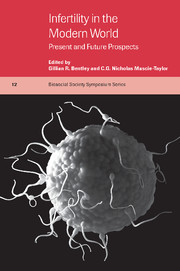7 - Sexual orientation and fertility
Published online by Cambridge University Press: 13 January 2010
Summary
Abstract
There has been much controversy lately about the role of sexual orientation in parenthood. Despite this, reliable information about lesbian, gay and bisexual parents and their children is limited both in nature and scope, and many intriguing issues have as yet been little studied. For example, until recently, basic issues such as possible associations between sexual orientation and fertility have gone almost entirely without systematic investigation. Are lesbian, gay and bisexual adults less likely than heterosexual adults to become parents? Although common sense might suggest that they are, the results of recent systematic research suggest that accurate answers to such a question are more complex than often realized. In this chapter, we offer a review and critique of previous attempts to estimate the size of lesbian/gay parent populations, describe recent efforts to make such estimates based on data from representative samples of American adults, and comment upon the likely biases inherent in different estimation processes. When all available data are considered together, the resulting estimates of fertility among lesbian and gay adults are lower than expected by some but higher than anticipated by others, and they highlight the complexities of assessing both sexual orientation and parental status among lesbian and gay adults.
Introduction
There has been much controversy recently in the United States and Western Europe surrounding lesbian and gay parents and their children. In a number of European countries, debates about same-sex marriages have included questions about the extent to which same-sex couples, if granted the right to marry, should also be allowed to become foster or adoptive parents (Henson, 1993).
- Type
- Chapter
- Information
- Infertility in the Modern WorldPresent and Future Prospects, pp. 238 - 260Publisher: Cambridge University PressPrint publication year: 2000
- 18
- Cited by

